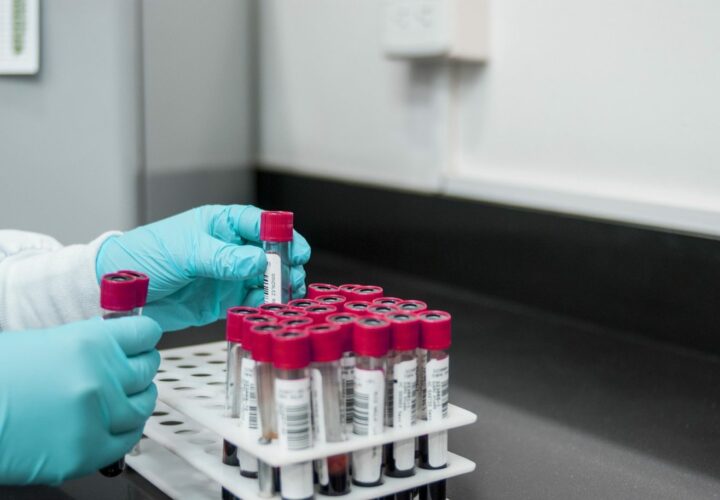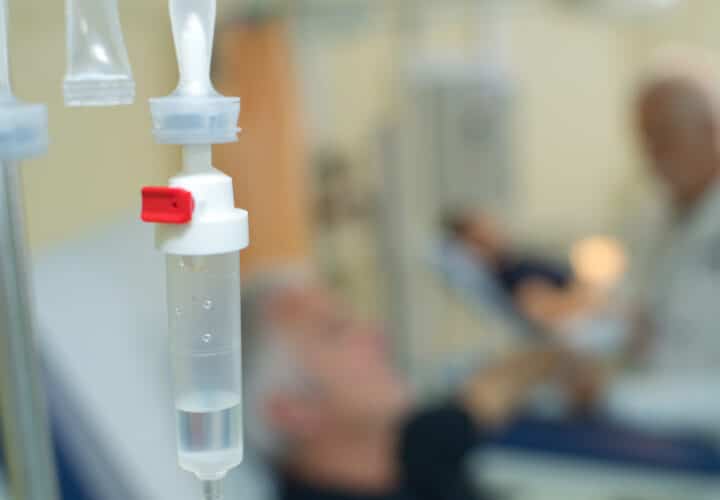Whether it’s diet, exercise or air pollution, researchers are constantly investigating lifestyle and environmental factors that may play a role in the progression or prevention of dementia. In recent years, some attention has been paid to lithium found in drinking water as a potential agent in preventing dementia. Now, there’s yet another study examining lithium–which is also used as a medication to treat certain psychiatric disorders–and its potential in battling Alzheimer’s disease.
Lithium is currently used in a clinical setting to lower abnormal activity in the brain, particularly in mood disorders like bipolar disorder. It’s also sometimes prescribed for depression, schizophrenia, impulse control disorders and other mental illnesses.
Researchers from McGill University in Canada honed in on a very small dose of the drug that may hold some benefits in treating neurodegeneration in the brain. When lithium was given in doses 400 times lower than what is currently being prescribed for mental illnesses, it showed promise in slowing down beta-amyloid plaques in the brain — considered to be one of the main drivers of Alzheimer’s.
Microdoses of Lithium in Alzheimer’s Rats
The researchers, led by Dr. Claudio Cuello at the Department of Pharmacology and Therapeutics at McGill, initially gave rats a dose of lithium proportionate to clinical doses given to patients with mood disorders like bipolar disorder. This didn’t work, however, as such a high dose ended up causing a lot of adverse side effects.
They decided to reduce the dose and applied it to a rat transgenic model containing human proteins that were mutated to resemble the triggers of Alzheimer’s disease. The rats developed Alzheimer’s features, such as beta-amyloid accumulation in the brain, as well as cognitive decline. This time, the researchers reported more promising results.
“Microdoses of lithium at concentrations hundreds of times lower than applied in the clinic for mood disorders were administered at early amyloid pathology stages in the Alzheimer’s-like transgenic rat,” Cuello said in a news release.
“These results were remarkably positive… and they stimulated us to continue working with this approach on a more advanced pathology,” he continued.
The researchers then chose to test this smaller lithium dose on the transgenic rat model again, this time with the rats showing more advanced stages of Alzheimer’s pathology. According to the researchers, lithium showed benefits in reducing pathology and even improving cognitive health at a much later stage as well.
“From a practical point of view, our findings show that microdoses of lithium in formulations such as the one we used, which facilitates passage to the brain through the brain-blood barrier while minimizing levels of lithium in the blood, sparing individuals from adverse effects, should find immediate therapeutic applications,” Cuello said.
Breaking Down the Evidence
But the reported findings don’t necessarily mean lithium will be a proven pathway to Alzheimer’s treatment. It was done in a rat model, and the results would need to be replicated in humans in order to show true potential.
And given the Alzheimer’s research field as a whole in the last decade, promising study results don’t necessarily lead to drugs, treatments or cures. While Biogen’s aducanumab, which targets beta-amyloid in the brain, was resurrected earlier this year and is being tested again in clinical trials, the research on Alzheimer’s and dementia has largely led to dead-ends, cancelled trials and drugs–and frustration among both patients and scientists.
In short, in order for lithium to be considered a viable future option in treating the disease, it has a long way to go.
Past studies have examined lithium’s potential for cognitive health. In 2017, a study found that drinking water containing tiny amounts of natural lithium–sprouting from mineral springs and rocks–could possibly slow down the mortality rate among Alzheimer’s patients. In that study, counties that had tap water containing lithium also happened to be correlated with lower increases in Alzheimer’s mortality over time. However, this was a correlation and not causation, and would need to be studied further.
“There’s so much more research we have to do before policymakers look at the evidence and say, OK, let’s start supplementing tap water with lithium just like we do in some municipalities with fluoride to prevent tooth decay,” Val Fajardo, the author of that study and assistant professor at Brock University, previously said in a news release.
Though those studies showed promise, other researchers have argued against the lithium and reduced Alzheimer’s risk link. In a May 2018 study published in JAMA Psychiatry and conducted by William Parker at the University of Chicago, researchers found “no significant association between groundwater lithium exposure and risk of bipolar disorder or dementia after adjustment for county-level demographics and health care resource.”
After controlling for factors like age, ethnicity and health care access, the association between lithium and lowered dementia didn’t prove strong enough, they argued.
Still, Cuello believes that his results, which refined a dose of lithium in drug form to fight cognitive decline and amyloid buildup in the brain, should be a therapeutic pathway to investigate further.
“While it is unlikely that any medication will revert the irreversible brain damage at the clinical stages of Alzheimer’s,” Cuello said, “it is very likely that a treatment with microdoses of encapsulated lithium should have tangible beneficial effects at early, preclinical stages of the disease.”






Just wondering – this study was done showing minimal doses of Lithium to be promising. So what effect are the therapeutic doses of Lithium that Bipolar patients take? Is too much lithium a negative thing?
Sasha, this is a good question. We suggest you pose that question to the author of the study, Val Andrew Fajardo, PhD and maybe he can respond to it here. ~ Thank you.